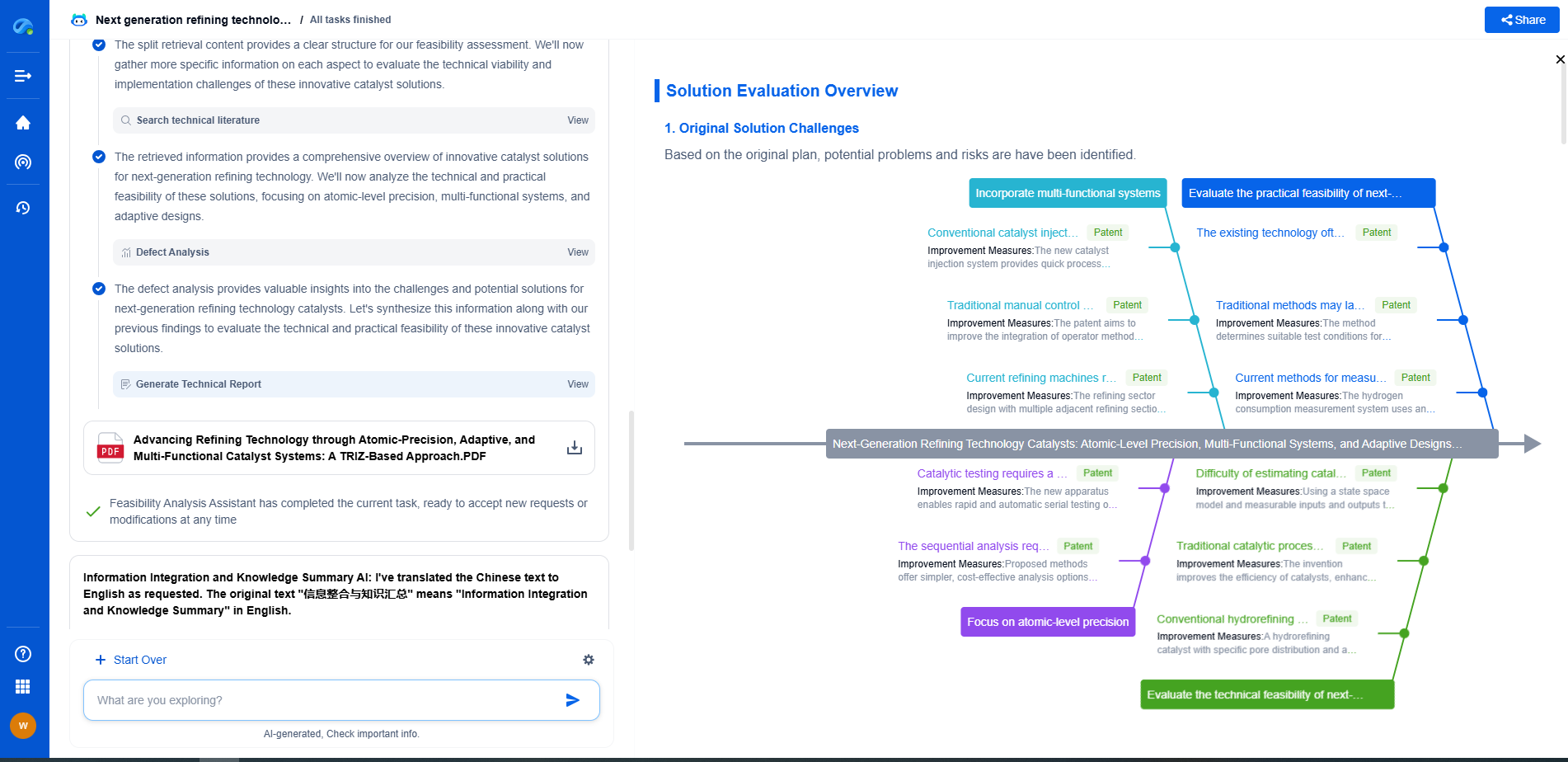What Are the Main Certification Standards for EV Batteries?
JUN 20, 2025 |
The transition to electric vehicles (EVs) is a major step towards reducing global carbon emissions and promoting sustainable transportation. Central to this transition is the performance and safety of EV batteries. As the demand for electric vehicles grows, it becomes crucial to ensure that the batteries powering these vehicles meet certain standards. Certification standards for EV batteries are essential to guarantee safety, reliability, and efficiency. These standards are set by various organizations worldwide, and understanding them is key for manufacturers, consumers, and policymakers alike.
The Importance of Certification Standards
Certification standards serve multiple purposes. Primarily, they ensure that EV batteries are safe for consumer use. Given the potential hazards associated with high-energy batteries, such as thermal runaway or short circuits, safety is paramount. Additionally, certification standards help maintain a level of performance across different manufacturers, ensuring that consumers receive consistent quality and reliability. Finally, these standards support environmental goals by promoting sustainable practices in battery design, production, and disposal.
Key Certification Standards for EV Batteries
1. UL 2580
The UL 2580 standard, developed by Underwriters Laboratories, is one of the most widely recognized certifications for EV batteries. It covers several safety aspects, including electrical, mechanical, and environmental considerations. UL 2580 ensures that batteries can withstand physical abuse, exposure to extreme temperatures, and electrical stress without compromising safety. This standard is crucial for reducing risks associated with battery misuse or accidents.
2. IEC 62660
The International Electrotechnical Commission (IEC) has established a set of standards specifically for lithium-ion batteries used in electric vehicles. The IEC 62660 series focuses on performance testing, safety requirements, and reliability assessments. This includes evaluating battery capacity, cycle life, and performance under different temperature conditions. Compliance with the IEC 62660 standards is vital for manufacturers aiming to ensure the long-term performance and safety of their battery systems.
3. ISO 12405
The International Organization for Standardization (ISO) provides another important set of standards through ISO 12405. This series addresses testing procedures for electric propulsion batteries, including battery systems and modules. ISO 12405 covers several critical aspects such as electrical performance, reliability, and abuse testing. These standards ensure that batteries perform efficiently over their expected lifespan and under various real-world conditions.
4. UN 38.3
Transporting lithium-ion batteries involves specific risks, which the UN 38.3 standard addresses. Developed by the United Nations, this standard outlines tests to simulate transportation conditions, such as altitude simulation, thermal testing, and impact testing. Compliance with UN 38.3 is mandatory for the shipment of lithium-ion batteries, ensuring they can be safely transported by air, sea, or land.
5. SAE J2464
The Society of Automotive Engineers (SAE) offers the J2464 standard, focusing on the safety and abuse tolerance of lithium-ion battery packs. It involves rigorous testing for thermal runaway, mechanical shock, and vibration resistance. By adhering to this standard, manufacturers can ensure that their battery packs remain safe and functional even under extreme conditions.
The Role of Regional Standards
In addition to international standards, various regions have their own specific requirements. For example, the China Automotive Technology and Research Center (CATARC) provides standards tailored to the Chinese EV market. Similarly, the European Union has its own set of directives and regulations, such as the EU Battery Directive, to ensure environmental compliance and promote battery recycling.
Conclusion
Certification standards for EV batteries are fundamental to ensuring the safety, performance, and environmental sustainability of electric vehicles. By adhering to these standards, manufacturers can build trust with consumers and contribute to the broader adoption of EV technology. As the industry evolves, these standards will continue to play a crucial role in guiding innovation and maintaining the integrity of electric vehicle systems worldwide.
Accelerate Breakthroughs in Fuel Cell and Battery Innovation—with the Power of AI
From solid-state battery breakthroughs to high-efficiency hydrogen fuel cells, keeping pace with fast-evolving chemistries, global patent landscapes, and emerging application pathways is an ever-growing challenge for R&D and IP professionals.
Patsnap Eureka, our intelligent AI assistant built for R&D professionals in high-tech sectors, empowers you with real-time expert-level analysis, technology roadmap exploration, and strategic mapping of core patents—all within a seamless, user-friendly interface.
Whether you're optimizing cathode formulations, evaluating electrolyte stability, or navigating the crowded patent space around battery pack design, Eureka empowers you to move faster and with greater confidence.
Start your journey with Patsnap Eureka today—streamline your research, enhance decision-making, and power the future of energy with AI-driven clarity.
- R&D
- Intellectual Property
- Life Sciences
- Materials
- Tech Scout
- Unparalleled Data Quality
- Higher Quality Content
- 60% Fewer Hallucinations
Browse by: Latest US Patents, China's latest patents, Technical Efficacy Thesaurus, Application Domain, Technology Topic, Popular Technical Reports.
© 2025 PatSnap. All rights reserved.Legal|Privacy policy|Modern Slavery Act Transparency Statement|Sitemap|About US| Contact US: help@patsnap.com

